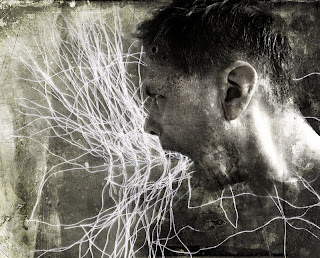Stories We Tell Ourselves About Anger
- Get link
- X
- Other Apps
At first, it is difficult to recognize disturbing emotions. One important reason is because you are experiencing it. While in the midst of it, you and that disturbing emotion are no different! It would be like trying to see your eyeball with your other eyeball without looking in a mirror. Like that, it is not easy to recognize because you are totally involved. We can repair this by being vigilant and seeing disturbances in their true nasty form as soon as they arise, and not later that night. Some Buddhist traditions teach the technique of naming negative emotions as an important part of their practices.
Beginning practitioners usually have many justifications and stories that they tell themselves about why they use anger or other strong difficult emotions in a positive way. If this was actually true, and, (for example), anger really is positive, then why don’t mature practitioners rely on that strategy? If it is so good, it stands to reason that as you become a better practitioner, you would become better at anger. Since that is not so, it must be something other than the skillful way that you might think you are using it, otherwise, everyone would be doing it, and even wise people would be angry all the time. ~ Domo Geshe Rinpoche ~~~
"Anfänglich ist es schwierig, verstörende Gefühle zu erkennen. Ein wichtiger Grund dafür ist, dass Du sie gerade erlebst. Wenn Du Dich mitten darin befindest, gibt es keinen Unterschied zwischen Dir und dem verstörenden Gefühl! Das wäre so, als ob Du versuchtest Dein eines Auge mit dem anderen anzusehen, ohne einen Spiegel zu benützen. So ist es nicht leicht zu erkennen, weil Du völlig darin gefangen bist. Wir können dem abhelfen, indem wir sehr wachsam sind und Störungen in ihrer wahren, gemeinen Form erkennen sobald sie erscheinen und nicht erst später am Abend. Es gibt buddhistische Traditionen deren wichtiger Bestandteil die Technik der Benennung von negativen Gefühlen ist. Praktizierende haben am Anfang oft viele Rechtfertigungen und Geschichten, die sie sich selbst darüber erzählen, warum sie Wut oder andere starke schwierige Emotionen auf positive Weise anwenden. Wenn dies wirklich stimmen würde und z.B. die Wut etwas Positives wäre, warum verlassen sich dann reife Praktizierende nicht auf diese Strategie? Wenn sie so gut wäre, könnte man argumentieren, dass Du ein besserer Übender würdest, wenn Du besser im Empfinden von Wut wirst. Da dies nicht der Fall ist, muss es sich dabei um etwas anderes handeln, als die kunstfertige Anwendung für die Du es vielleicht hältst, denn sonst würden es ja alle tun, und selbst weise Menschen wären ständig wütend." - Domo Geshe Rinpoche ---~~~
Au début, il est difficile de reconnaître les émotions pertubatrices. Une des raisons importantes en est parce que vous l'expérimentez. Au beau milieu de celle-ci, vous et cette émotion pertubatrice n'êtes pas différents! C'est comme si vous cherchiez à apercevoir l'un de vos globes oculaires avec l'autre sans l'aide d'un mirroir. Ainsi, reconnaître n'est pas facile car vous êtes complétement partie prenante du processus. Nous pouvons remédier à cela en restant vigilant et en voyant les perturbations dans leur véritable méchant aspect dés qu'elles apparaissent, et non pas cette nuit. Quelques unes parmi les traditions bouddhistes enseignent la technique de nommer les émotions, comme une partie importante de leurs pratiques. Les pratiquants qui débutent vont trouver de nombreuses justifications et se raconter des histoires comme quoi ils utilisent la colère, ou toute autre forte émotion difficile, d'une façon positive. En fait, si cela s'avérait exact, et si, (par exemple) la colère était positive, alors pourquoi est-ce que les pratiquants plus avancés ne s'appuiraient-ils pas sur cette stratégie? Si c'était si bien, il est raisonnable de penser que plus vous devenez un bon pratiquant, meilleur vous êtes à la colère. Etant donné que ce n'est pas le cas, alors c'est autre chose ; autre chose que le moyen habile que vous pensez employer sinon, tout le monde ferait ainsi, et même les gens avisés seraient en colère tout le temps.~ Domo Geshe Rinpoche ~~~
- Get link
- X
- Other Apps



Comments
Post a Comment
I appreciate your comments- find a minute or two (for members of this blog) to share your views